Juliet becomes Julius in Shakespeare's love story
- Published
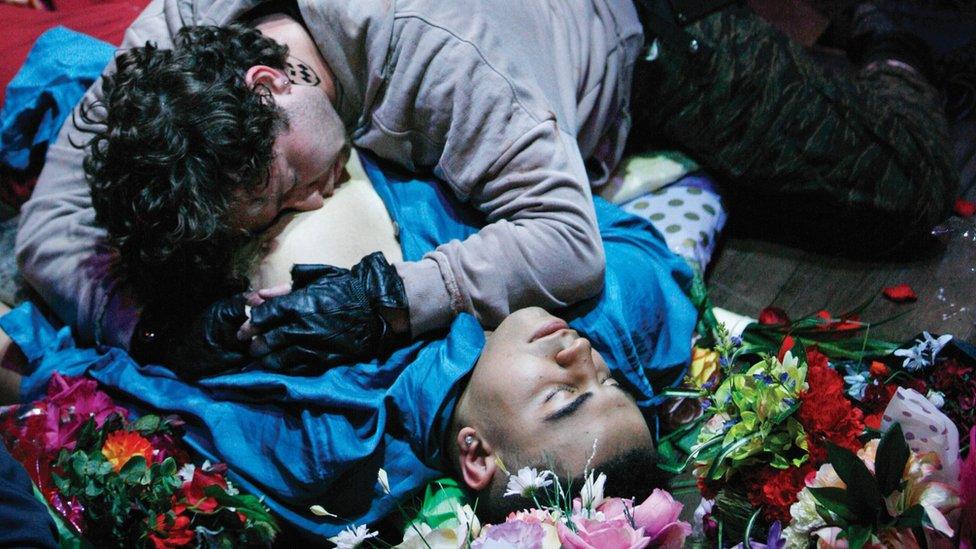
George Caple (top) and Elliott Kingsley play Romeo and Julius at the Liverpool Everyman
There has been much speculation about William Shakespeare's sexuality - so is there a chance that, if it had been acceptable in his time, he might have written his greatest love story about Romeo and Julius instead of Romeo and Juliet?
"I think he probably would if I'm honest," says Nick Bagnall, who's directing a new version of Romeo and Juliet, as the Bard (maybe might possibly have) intended it - with two men in the lead roles.
We know Shakespeare intended Juliet to be played by a young man - all female roles were played by boys and men at that time.
But this version, staged by the Liverpool Everyman, is the first time a major British theatre has made it about gay lovers.
One theory - put forward by Oscar Wilde, external, among others - says Shakespeare wrote Juliet and other girls' roles for a young actor who was the object of his affections.
"There's a huge debate around what he thought about the actor playing Juliet," says Bagnall.
"I'm pretty good on the archives and research, and I think he probably would have quite liked to have done that [written Juliet as a male] if he'd been allowed, I really do."
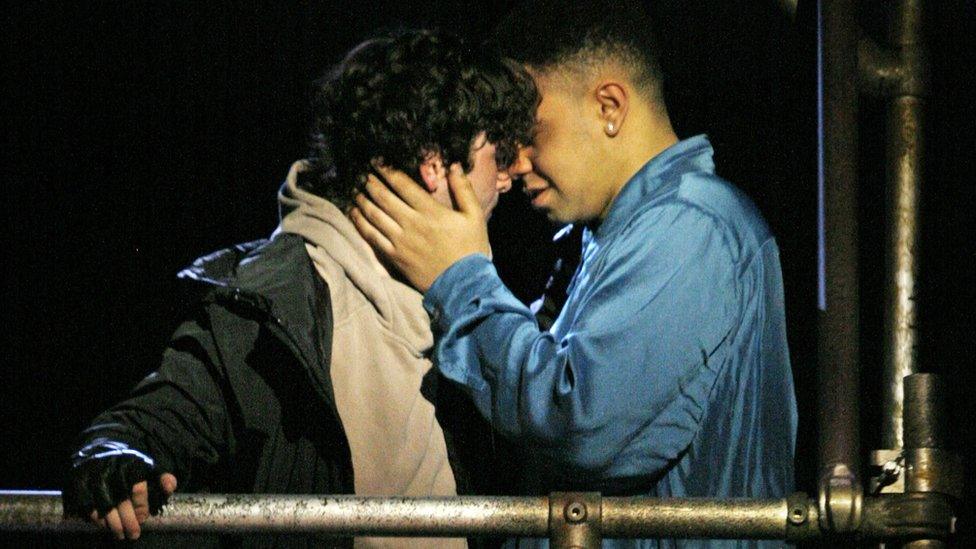
The pronouns have been changed, but the rest of the star-cross'd lovers' story stays the same
The Liverpool production keeps the play's original title, but in the play itself Juliet is now Julius - played by 20-year-old Elliott Kingsley.
"I think he'd totally love it," Kingsley says, continuing the speculation about Shakespeare's true feelings.
"Shakespeare wrote this part for a man. A boy played Juliet originally, and it's widely believed that it was a boy that he was in love with, and that this was his love letter to this actor.
"So it's not beyond the realms of possibility for a man to say these words with truth because originally that's the way it was."
'I'd unearthed something exciting'
The speculation about Shakespeare's sexuality stems from his sonnets, which are dedicated to "Mr WH" and many of which are addressed to a mysterious young man known as the "Fair Youth". But there's scant evidence about who this figure was, or where the Bard's affections lay.
The idea to turn Romeo and Juliet into a gay love story came when an actor delivered one of Juliet's yearning monologues during an audition.
Bagnall says: "Watching a male speaking that rather feminine language about the frustration of needing Romeo to come to him that night, I just thought, I wonder [what it would be like] if I read the whole play again with that in mind.
"And with a few trims and changing 'she' to 'he' and 'mistress' to 'master', I felt like I'd unearthed something really exciting in that play."
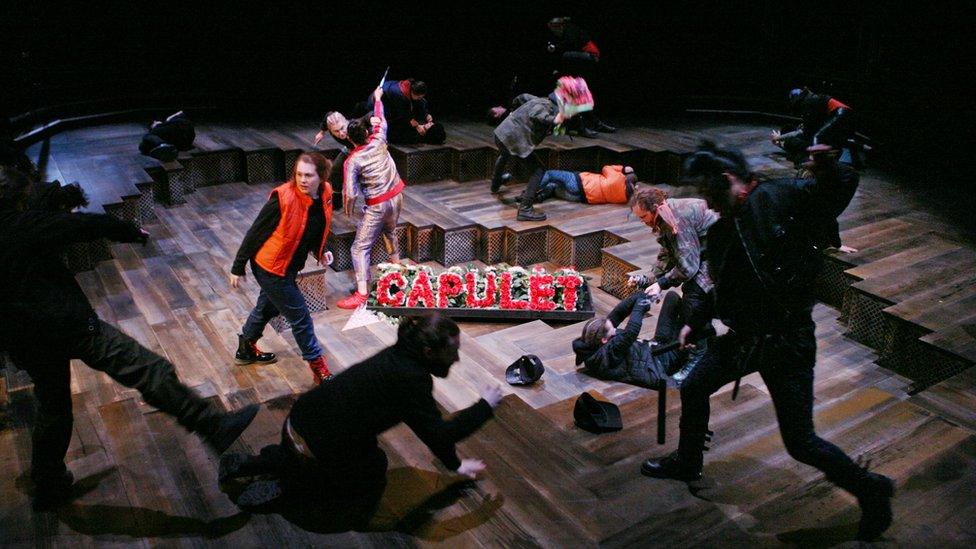
The show is part of the Liverpool Everyman's first rep season for 25 years
In the original Romeo and Juliet, the hero is initially in love with Rosaline before falling for Juliet. In the Liverpool version, Bagnall says Romeo is confused about his sexuality.
"I think when he sees Julius it unlocks an inner turmoil in him and it makes that journey really muscular, and the inner turmoil he lives with is really interesting."
That manliness lends the story unexpected new meanings, says the director. He is speaking just after the cast have rehearsed the final death scene.
"It was a really violent scene, which I've never really seen before," he says. In the past, he's found that ending "quite flowery" and has been "disappointed".
"But watching it this morning with muscularity and a 6ft 2in lump of a lad in tears - there are certainly [new] things that are pinging out more and more."
And there's another meaning pinging out now. In this version, Romeo is white and Julius and the Capulet family are not. That raises questions about attitudes towards homosexuality in some countries and communities.
"It makes it incredibly exciting and devastating when we open up a discussion about young gay men in certain countries around the world where, still happening to this day, they're banished, tortured, abused, sent from their families, disowned for being a gay man.
"Within the company of people I'm working with, that's been quite a big decision that we've embraced - the race, and how you can justify anything, which the Capulets do anyway, with the phrase 'in God's name.'"
Romeo and Juliet opens on Wednesday, but the 14-strong company has been together for three and a half months - performing in the Liverpool Everyman's first rep season for 25 years.
They are following in the footsteps of the likes of Julie Walters, Bill Nighy, Pete Postlethwaite and Jonathan Pryce, who emerged from the illustrious Everyman rep companies of the early 1970s.
This year's company started with a five-star Fiddler on the Roof, followed by the surreal Conquest of the South Pole, children's show The Story Giant, austerity musical The Sum, and ending with Romeo and Juliet.
"If Romeo and Juliet had been the first show in the season I don't think I would be able to do some of the things I've been doing, in terms of just letting your guard down," says George Caple, who plays Romeo.
"I genuinely believe the work is better when people properly trust each other in the room, which we all do."
The class of 2017 - the pick of Liverpool Everyman's rep company
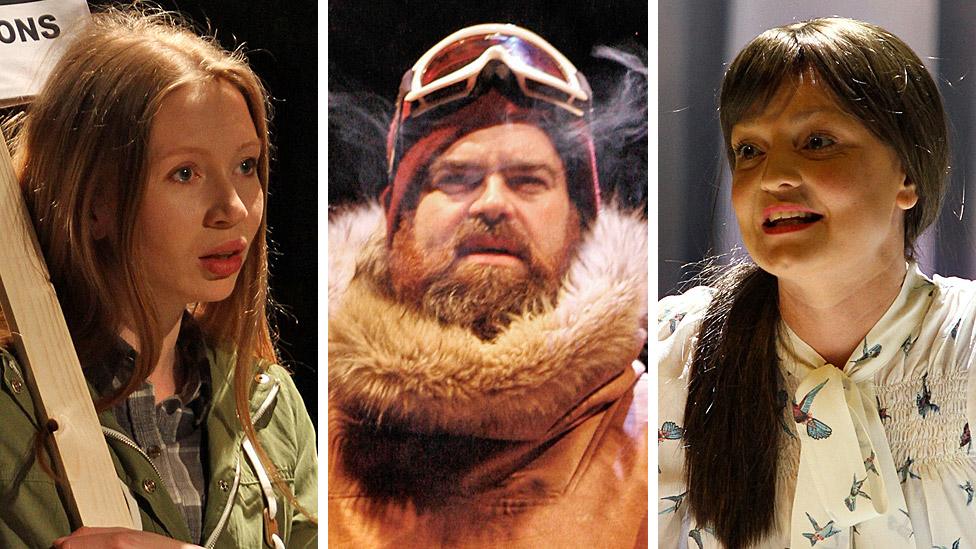
Left-right: Emily Hughes, Dean Nolan, Laura Dos Santos
Emily Hughes - has shone on her professional debut with a magnetic combination of brittleness and goofiness
Dean Nolan - a huge presence who steals every scene, whether he's doing slapstick or soul searching. And if they ever make a Brian Blessed biopic...
Laura Dos Santos - excelled at playing an everywoman on the verge in the lead role in Lizzie Nunnery's The Sum

Romeo and Juliet runs until 7 June, then all five Everyman Rep shows will play in rotation until 1 July.

Follow us on Facebook, external, on Twitter @BBCNewsEnts, external, or on Instagram at bbcnewsents, external. If you have a story suggestion email entertainment.news@bbc.co.uk, external.
- Published12 December 2016
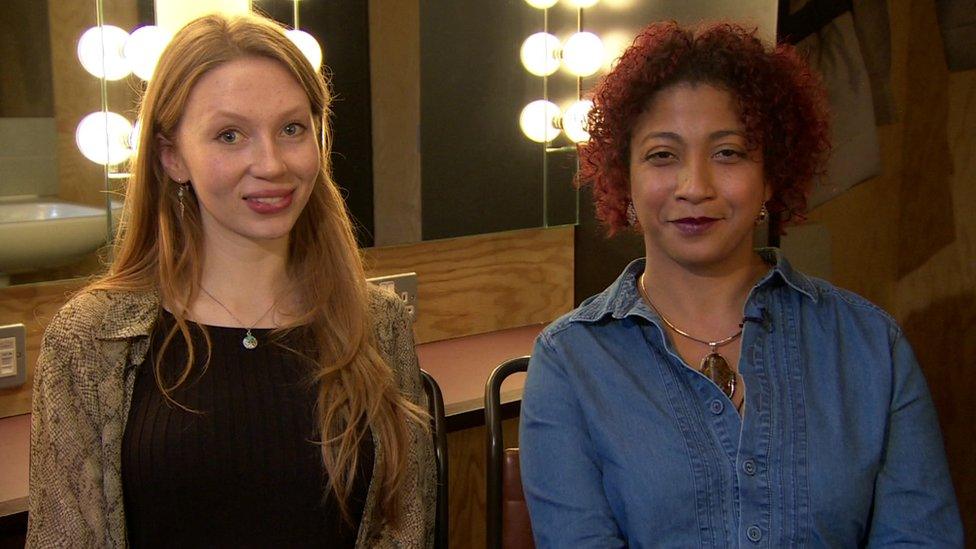
- Published27 April 2015
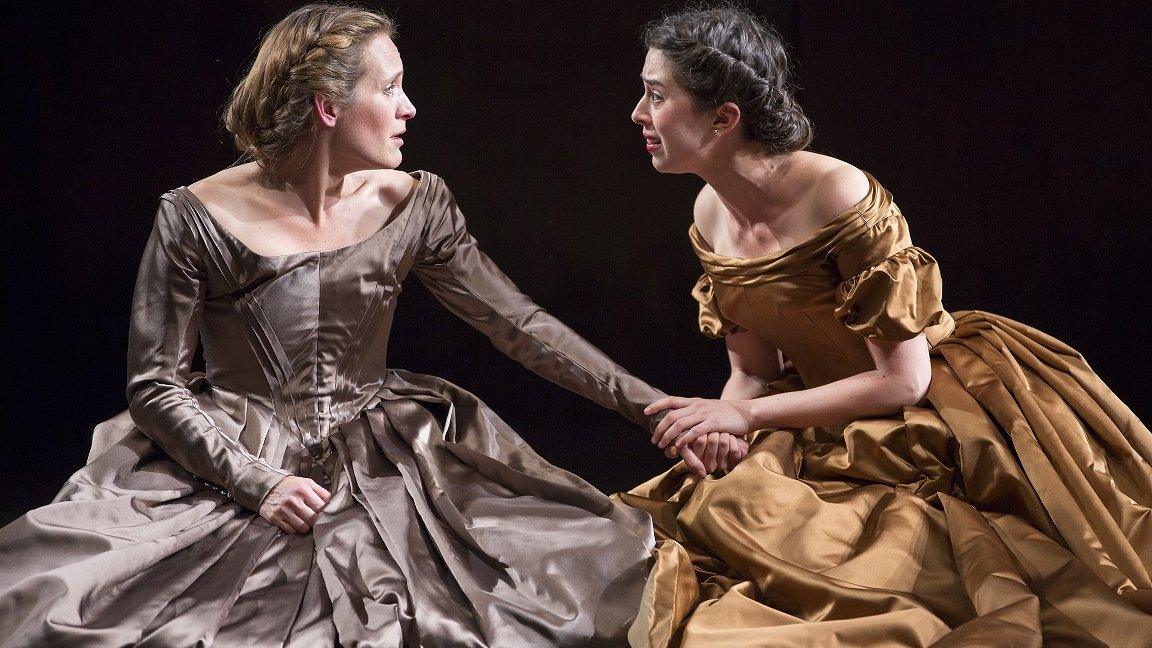
- Published12 January 2011